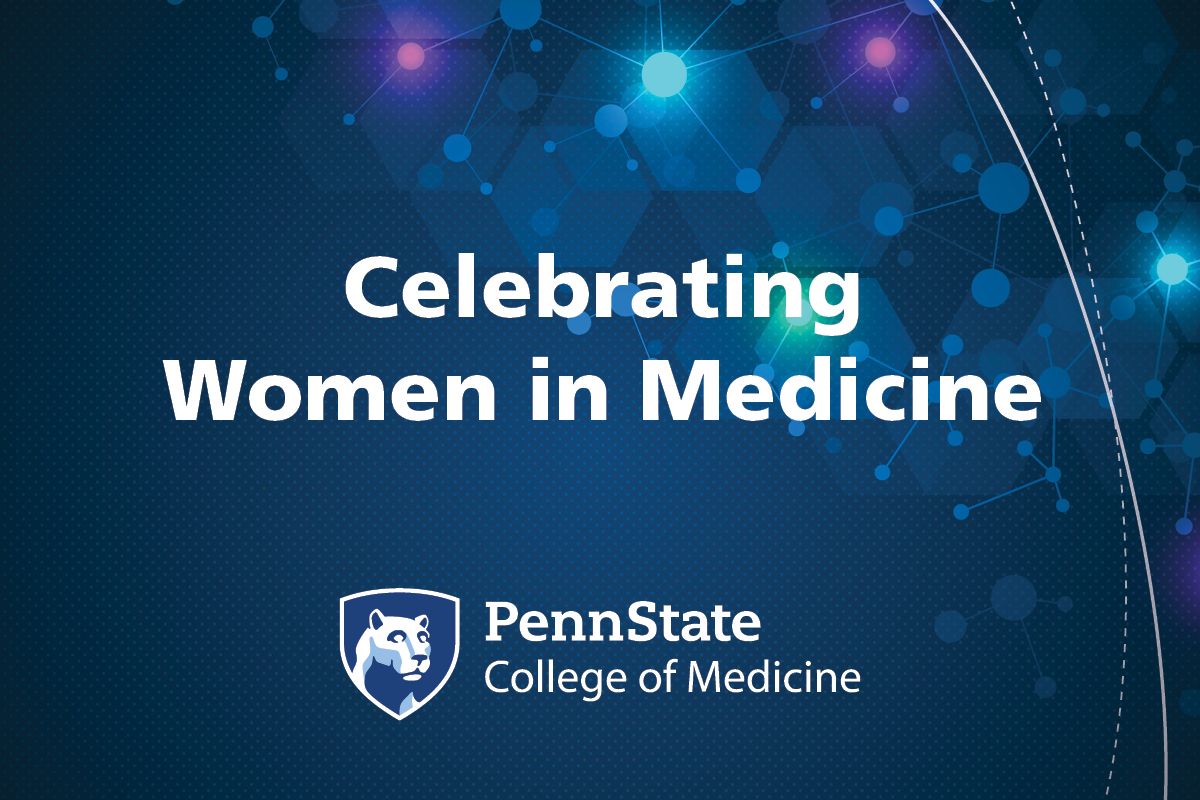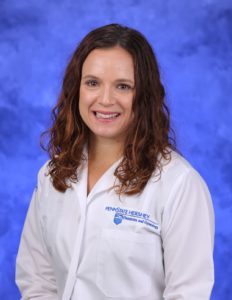Women in Medicine: Danielle Prentice, DO

September is Women in Medicine Month, presented by the American Medical Association Women Physicians Section. Penn State College of Medicine honors Dr. Danielle Prentice, a maternal fetal medicine fellow at Penn State Health Milton S. Hershey Medical Center, in part five of this seven-part series.
Dr. Danielle Prentice has simple advice for women who want to pursue a career in medicine.
“Put yourself out there, and don’t be afraid to reach out to people who can help you,” she said. “People are sometimes worried about getting in touch with others and talking to them about a question or problem that they’re facing.”
Prentice, a maternal fetal medicine fellow at Penn State Health Milton S. Hershey Medical Center, explained it is difficult for some people to show their vulnerabilities to others, yet it is not a sign of weakness but rather a mark of strength to look for answers.
Finding a mentor is key, she added. The person who helped her find her way to medical school was not a physician or even anyone in health care – it was her gymnastics coach at the University of Denver.
“When I had doubts about medicine, she pushed me,” Prentice said. “She helped me work through a lot of decisions.”
That is what Prentice wants for other young women in her field. Studies show increased career satisfaction, faculty retention, productivity and promotions when women in medicine are part of a mentorship. But despite these benefits, women are less likely than men to have mentors.
The lack of mentors, Prentice says, translates to fewer women in leadership roles. Even though obstetrics and gynecology has shifted to being a field dominated by women, few leaders of OB-GYN departments are women.
The gender leadership gap
Because of the lack of female leadership, Prentice stated, “you still run into the lack of understanding of what it’s like to be women in research and medicine.”
For example, she said, she talked about becoming a surgeon early on in her studies. People told her it was good she wasn’t married and how difficult it was for women to be surgeons.
“A lot of people want to convince you not to do something because of your gender,” she explained, adding that is why it is vital to have a mentor who can remind you of your skills and abilities.
Speak up for yourself
At Penn State Health, she has found a tremendous number of accomplished women who can be sounding boards and advice givers. She takes her own advice and speaks up when she needs help or has an idea.
One place where speaking up made a difference is in her research. She reached out to colleagues at the College of Medicine about her interest in exercise. Prentice exercises regularly and was interested in finding out about the impact of obesity and exercise on women who are pregnant. Now she is part of a project looking at the effects of obesity and exercise on fetal neurodevelopment and maternal morbidity and mortality.
She also has an interest in studying the prediction, diagnosis and treatment of postpartum depression.
Along with research, Prentice focuses on clinical care and advocates for equitable care. After graduating from the University of Denver, Prentice attended Oklahoma State University College of Osteopathic Medicine and completed her residency in obstetrics and gynecology at SSM Health St. Anthony ─ Oklahoma City.
Her career so far has taught her much about patient care but also about being successful as a medical school student, resident and fellow.
“Remember to put yourself out there,” she said, “and believe in your ideas.”
If you're having trouble accessing this content, or would like it in another format, please email Penn State Health Marketing & Communications.

